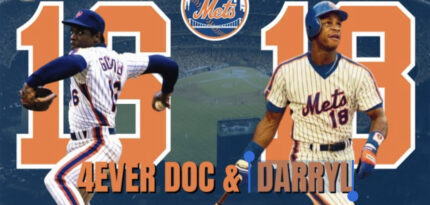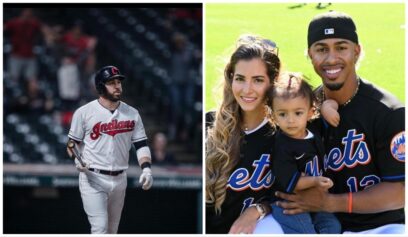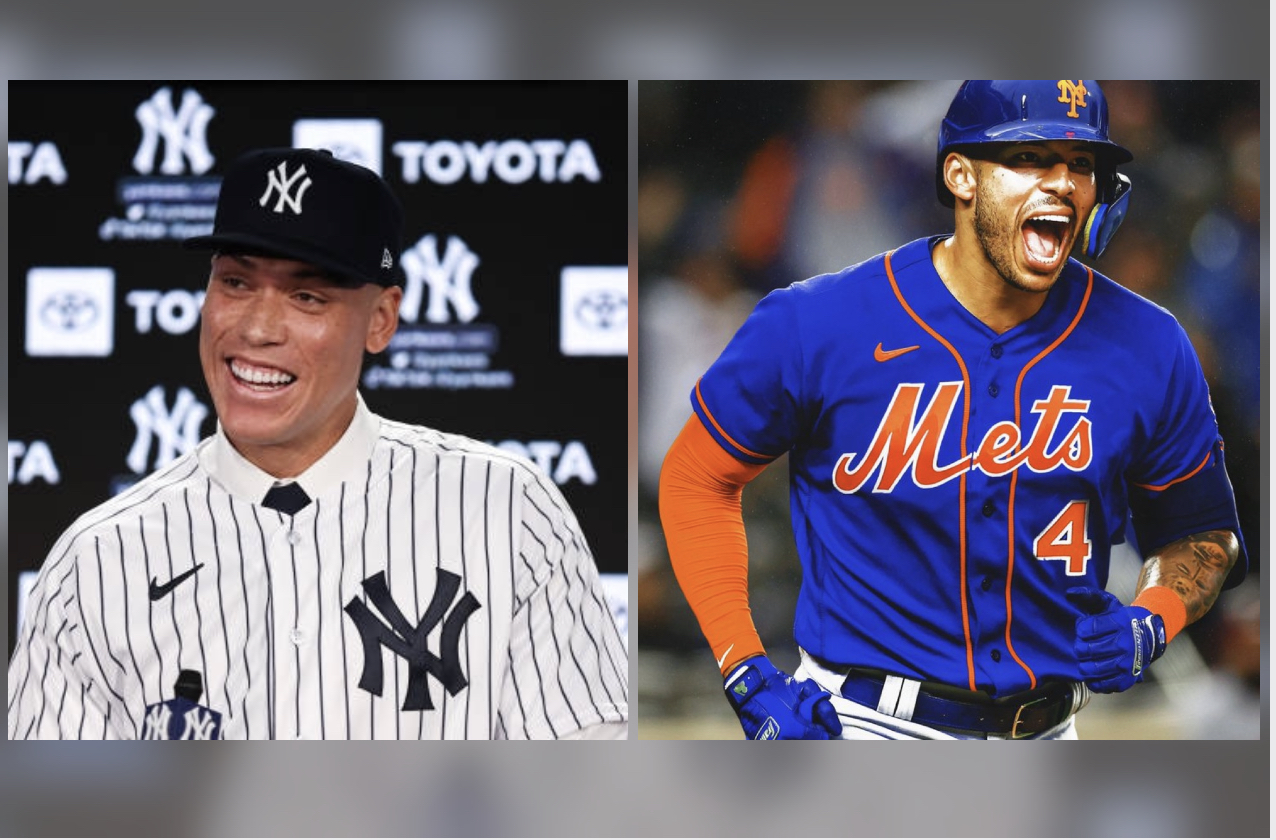Diversity in pro sports, particularly in leadership positions, has been a trending topic of late.
While MLB has lost some of its diversity on the field since the late ’70s and ’80s, when African-American ballers comprised almost 20 percent of the high-priced help, the Commissioners office — starting with the retired Bud Selig and now Robert Manfred Jr. — has made great efforts to acknowledge the players of the past who helped shape the game and diversify it. It has also influenced incremental changes in the front office and been a leader in promoting, tolerance, racial equality and inclusion.
On January 7th, Manfred Jr. announced that former Major League player Curtis Pride had been appointed as the league’s newest Ambassador for Inclusion, replacing Billy Bean, who has been promoted to the expanded position of Vice President, Social Responsibility & Inclusion.
What makes Prides appointment ground-breaking is the fact that he was born deaf at birth from rubella. After being drafted by the Mets in the 10th-round, he was already a pioneer when he reached the majors with the Montreal Expos in 1993, becoming the first deaf player in the majors since Dick Sipek in 1945.
Now, as Ambassador of Inclusion Pride will focus his energies on ensuring that players and people of the baseball community with disabilities and other hindrances can all partake in baseballs benefits.
Said Manfred Jr.: Curtis Pride is an inspiring example of determination and an outstanding role model for kids and all those who overcome challenges. He will offer a valuable perspective as we continue efforts to foster an inclusive environment for anyone who plays or is a fan of our sport.
The Shadow League spoke with Pride via a relay service on Wednesday as he prepared for his new position, significant responsibilities and ambitious tasks that lie ahead.
—
Curtis Pride: “I am honored that I have been appointed by MLB to be the “Ambassador for Inclusion” and I am excited about working with MLB. I will have different roles. First and foremost I will serve as a resource for people in the MLB community regarding any issues related to disabilities.
Secondly I will be working with Tony Reagins, Senior VP of MLBs Youth Programs on further developing and enhancing national youth programs. Also, trying to encourage more participation and outreach and more minorities participating in youth baseball and more children with disabilities to have equal opportunities to play baseball.
Thirdly, I will be working with Wendy Lewis, who is MLBs Senior Vice President of Diversity, Inclusion & Strategic Alliances, in ensuring that there is inclusion in the workplace in all of baseball from minor leagues to the major leagues and stadium operations. Also I will be making sure that all 30 stadiums are fully accessible to all people with disabilities”
A Dream He Could Touch and Feel
Pride turned his passion for baseball into an 11-year major league career. Rarely a starter, but always the consummate pro, he batted .250 (199-for-796) with 20 home runs and 82 RBI in 421 major league games with six different teams.
CP: “It has been a long journey to the major leagues but I am proud of my accomplishments and it certainly wasnt easy. I had to overcome different obstacles, such as constantly proving to people that I can play at the highest level despite my deafness. I have many fond memories of playing in the majors and developed many good friendships with many people along the way.”
Pride says his biggest accomplishment is getting his first major league hit with the Expos against the Phillies, It was a two-run double to help the Expos come from behind to win against the Phillies during a pennant race.
I had a five-minute standing ovation, he said. That was a very emotional experience.
It wasn’t the last time he’d come through for a team in the clutch.
Born A Winner
With strong family support and a knack for athletic brilliance, Pride was able to overcome the challenging obstacles and outcast mentality a lot of children with disabilities have. He refused to be treated as inferior.
CP: “I had a great support from my parents, sisters, neighborhood friends and classmates. It wasnt easy at first when I first realized that I was different from other kids in elementary school because of my deafness. I had a hard time accepting it, but my parents told me that it was something I was born with and I had to learn to accept it and try to make the best of my situation. They instilled a strong belief in myself that anything was possible and that I could do anything I wanted to do as long as I put my mind to it and worked hard at it.”
Pride blossomed into a three-sport stud at Kennedy High School in Silver Spring, Maryland, beasting the comp in baseball, basketball, and soccer. Pride was a 1986 Parade Magazine High School All-American soccer player. He played for the United States National Soccer Team at the 1985 FIFA U-16 World Championship in China and scored two goals in the tournament, including the match winner against Bolivia.
His all-around talents earned him a spot among the the top 15 youth prospects in the world for that year.
After high school, the 6-0, 205-pound, fleet-footed multi-tasker attended the College of William and Mary. He was a top student and the starting point guard on the hardwood.
CP: “Well, I guess growing up kids viewed me differently because of my deafness and so that was an incredible motivation for me. I wanted to prove them wrong…let them know that I am just as good an athlete as anyone else or even better. That was my motivation; to be the best athlete I can be in every sport I played growing up.”
Giving Back
After his MLB career ended in 2007, Prides competitive spirit and thirst for baseball led him to a federally chartered private university for the education of the Deaf and hard-of-hearing located in Washington, D.C. In five seasons at Gallaudet University, he took the program from a record of 4-29 in the year prior to his arrival to an all-time school record of 27 wins in 2014.
CP: “I enjoy coaching college baseball, especially at Gallaudet. I have had the privilege of playing for some of the best managers the game such as Bobby Cox, Joe Torre, and Mike Scioscia and learned a lot from them and their different philosophies. I was able to incorporate their philosophies into one style and use that to help establish a winning program. I believe in strong communication between coach and players like Bobby Cox. I am an aggressive coach and like to gamble a lot and play aggressive on the base paths like Mike Scioscia.
A Leader In The Future of Diversity In Sports
Pride has traded in the skippers cap for a suit and tie with MLBs front office. Hes gone from college game-manager to MLB taste-maker, but his ultimate goal, he says is becoming a Big League manager some day.
For now, Pride who is a fluent lip-reader, uses his 5% residual hearing to help him speak and get 100 percent out of his communicative talents. The pressing question for Pride and his inclusion team remains the same as it has been for years in baseball. What will he do to increase minority participation in baseball?
CP: “Well, I have only been on the job a bit more than a week and I plan on meeting with Tony Reagan to discuss how we can improve minority participation and put plans into place. African-Americans make up a smaller share of major league players than they have at any time in the last 50 years, We do have RBI programs set up across the country, but I think it is just a matter of encouraging minorities and making the field and equipment accessible for them and showing them how the game can be just as fun as any other sport like basketball and football.
Prides track record says, dont bet against him.



